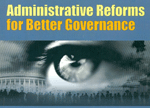Social Watch News
Published on Mon, 2013-04-22 14:23
Bangalore - After independence, we got bureaucracy not democracy, said Bhaskar Rao Gorantla, Research Director of National Social Watch (India). He was addressing a gathering of civil society representatives at a consultation programme organized by the Karnataka Social Watch on administrative reforms. Listing various structural problems in the administration, he said that although the central and state level administrations have undergone a positive change since independence, the district/local level administrative bodies have not undergone any significant changes. |
Published on Fri, 2013-04-19 00:00
Social Watch Coordinator addresses inequalities in his intervention at the "Think Global day" in Brussels on April 19th. 2013. See the video here. |
| Published on Thu, 2013-04-11 17:04 |
Published on Thu, 2013-04-11 11:20
As a whirlpool, the crisis that has been lasting for the past 5 years has hit Italy hard in 2012. The deterioration of the living conditions of a large part of the Italian population concerned especially the "working poor": in Italy, there are three million, about 15% of the total employed. Eight million Italians live with less than one thousand euro per month. The crisis has seriously damaged the middle class. |
Published on Thu, 2013-04-11 11:07
Armenia adopted the “UN Millennium Declaration” in 2000. It was obvious that the goals cannot be comprehensive, and each country should determine its current problems, especially if the solution is defined by the Constitution and other laws and international obligations. As a result of MDG local adaptation the following goals: “Achieve universal primary education”, “Contribute to gender equality and empowerment of women” were not recognized as the first order priority since the Constitution obliges the state to ensure that all citizens work, have a decent standard of living, access to all levels of education, professional training, health care and healthy living conditions, etc. However despite these two goals were not emphasized as priority ones some achievements were observed with respect to these spheres. The programs initiated for eradicating poverty and achieving equality were sentenced to fail, since they are not focused on human being, that is the program results are not tied to improvement of real life of people. |
| Published on Mon, 2013-04-08 00:00 |
| Published on Fri, 2013-04-05 07:36 |
Published on Thu, 2013-04-04 11:52
According to government data, Malaysia is said to be on the way towards achieving all eight MDGs; commitment is reflected in the Tenth Malaysia Plan (2011-2015). But Malaysia’s development trajectory has hitherto primarily been driven by a combination of low worker wages amidst high revenues for petroleum, palm oil and rubber commodities and foreign direct investment in the manufacturing sector. In other words, very little of the profits in the form of oil royalties, for example, have gone towards developing the states that produce a large bulk of the oil, such as Kelantan, Terengganu, Sabah and Sarawak, but which happen also to be the poorest states in Malaysia. And while the government announced its motto to be “People First, Performance Now” and its goals to reduce crime; fight corruption; improve student outcomes; raise living standards of low-income households; improving rural basic infrastructure; and improve urban public transport, it appears that while lip-service has been paid, little pertaining to the structural and systemic inequities, inequalities and injustices of the political or social economy have been dealt with or addressed with any substance. Malaysia’s inadequate financial, technological and market infrastructure and human capital have been pinpointed as reasons why it cannot compete in economically higher-value-added products and services. |
Published on Thu, 2013-04-04 10:52
Despite that the poverty level in Azerbaijan decreased by 1.5 % and amounted to 7.6 % in 2011, share of poorest quintile in national income also diminished. Revenues from the oil sector could be allowed financing projects required to reach those aims by 2015. But interestingly that even in Azerbaijan receiving large revenues from oil, there wasn’t rapid increase in public funding for the social sector. The Government rather prefers to accumulate the surplus in the special oil fund and plan to use it to push forward big infrastructure projects. |
|
Published on Tue, 2013-04-02 00:00
This time it is Cyprus' turn to face bitter financial crisis as bank depositors get hit and capital controls are imposed. Will the lessons about these crises ever be learnt? The Cyprus crisis has again shown that over-dependence on the financial sector and an unregulated and liberalised financial system can cause havoc to an economy. The particular manner in which a financial crisis manifests itself may be different from country to country, depending on the ways that country became financially over-reliant or over-liberalised, and also on how ever-changing external conditions impact on the country. |
SUSCRIBE TO OUR NEWSLETTER









